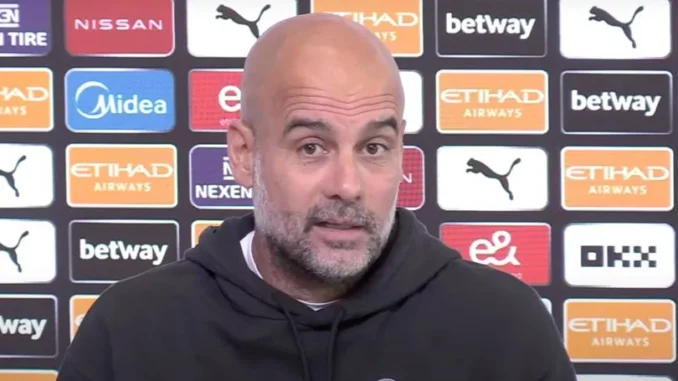
Pep Guardiola Considers Man City U-Turn After England Approach
In a stunning turn of events, reports have emerged suggesting that Pep Guardiola, the renowned manager of Manchester City, is contemplating a potential U-turn regarding his future at the club. This comes on the heels of an approach from the Football Association (FA) to discuss the possibility of him becoming the next manager of the England national team. Given Guardiola’s impressive track record, this interest has sent shockwaves through both Manchester City and the broader football community.
Guardiola joined Manchester City in 2016 and has since transformed the club into a dominant force in English and European football. Under his stewardship, City has secured multiple Premier League titles, FA Cups, and a historic Champions League trophy. Guardiola’s tactical acumen and ability to develop players have made him one of the most respected figures in the sport. However, as the England team seeks to recover from recent disappointments in international competitions, the FA has turned its gaze towards Guardiola, viewing him as a potential savior.
The prospect of Guardiola taking over the England role raises intriguing questions about his motivations and aspirations. While he has publicly committed to Manchester City, the allure of international football, particularly with a team boasting such talent, could be hard to resist. England, with its rich footballing history and passionate fan base, offers a unique challenge. After the team’s mixed performances in recent tournaments, including a disappointing exit from the World Cup, the FA is looking for a manager who can reinvigorate the squad and lead them to success on the international stage.
Sources close to Guardiola indicate that he is weighing the pros and cons of such a move. On one hand, leading England could provide him with an opportunity to make a lasting impact on the national team and potentially achieve glory at the European Championship or World Cup. On the other hand, Guardiola has built a project at City that he may feel is incomplete. The club’s aspirations to dominate European football are very much alive, and Guardiola’s involvement has been pivotal in their pursuit of sustained success.
For Manchester City, the prospect of losing Guardiola is daunting. His unique approach to the game and his deep understanding of player management have been crucial in creating a winning culture at the Etihad Stadium. Guardiola’s connection with the players, particularly stars like Kevin De Bruyne, Erling Haaland, and Phil Foden, has fostered an environment where talent can flourish. Losing him could disrupt the delicate balance and cohesion that he has cultivated.
Additionally, City’s hierarchy would face a significant challenge in finding a suitable replacement. The club has invested heavily in its infrastructure and player recruitment, all with Guardiola’s vision in mind. A change at the helm could require a major overhaul, both in terms of tactics and personnel, which might jeopardize the club’s ambitions in the short term.
As for the England team, the addition of Guardiola could herald a new era. His tactical innovations and emphasis on possession-based football align with the modern game and could transform how England approaches international fixtures. The potential for rejuvenating players like Harry Kane, Jude Bellingham, and Declan Rice under Guardiola’s guidance could significantly raise England’s chances of success in upcoming tournaments.
However, there are also inherent risks involved. International management is markedly different from club management. The limited time with players and the varied club commitments of the squad can make it difficult to implement a cohesive strategy. Guardiola’s preference for meticulous planning and preparation may be tested in this environment, raising questions about whether he would be able to adapt his methods effectively.
In recent years, the relationship between club and country has often been fraught, with managers facing scrutiny over player fatigue and injuries. Guardiola has been a vocal advocate for player welfare, and the demands of international duty could add another layer of complexity to his management philosophy.
As the FA approaches Guardiola, the outcome remains uncertain. His decision could reshape the future of both Manchester City and the England national team. Should he accept the role, it would mark a significant shift in his career trajectory, steering him towards a different challenge while leaving behind a legacy at City that few could match. Conversely, a decision to remain with City could further solidify his status as one of the game’s greats, continuing to chase the ambitious goals he set when he first arrived.
In conclusion, Pep Guardiola’s potential U-turn to consider the England managerial role highlights the complex interplay between club ambitions and national pride. As both Manchester City and the FA navigate this pivotal moment, the football world watches closely, knowing that Guardiola’s decision could influence the landscape of the sport for years to come.
Be the first to comment